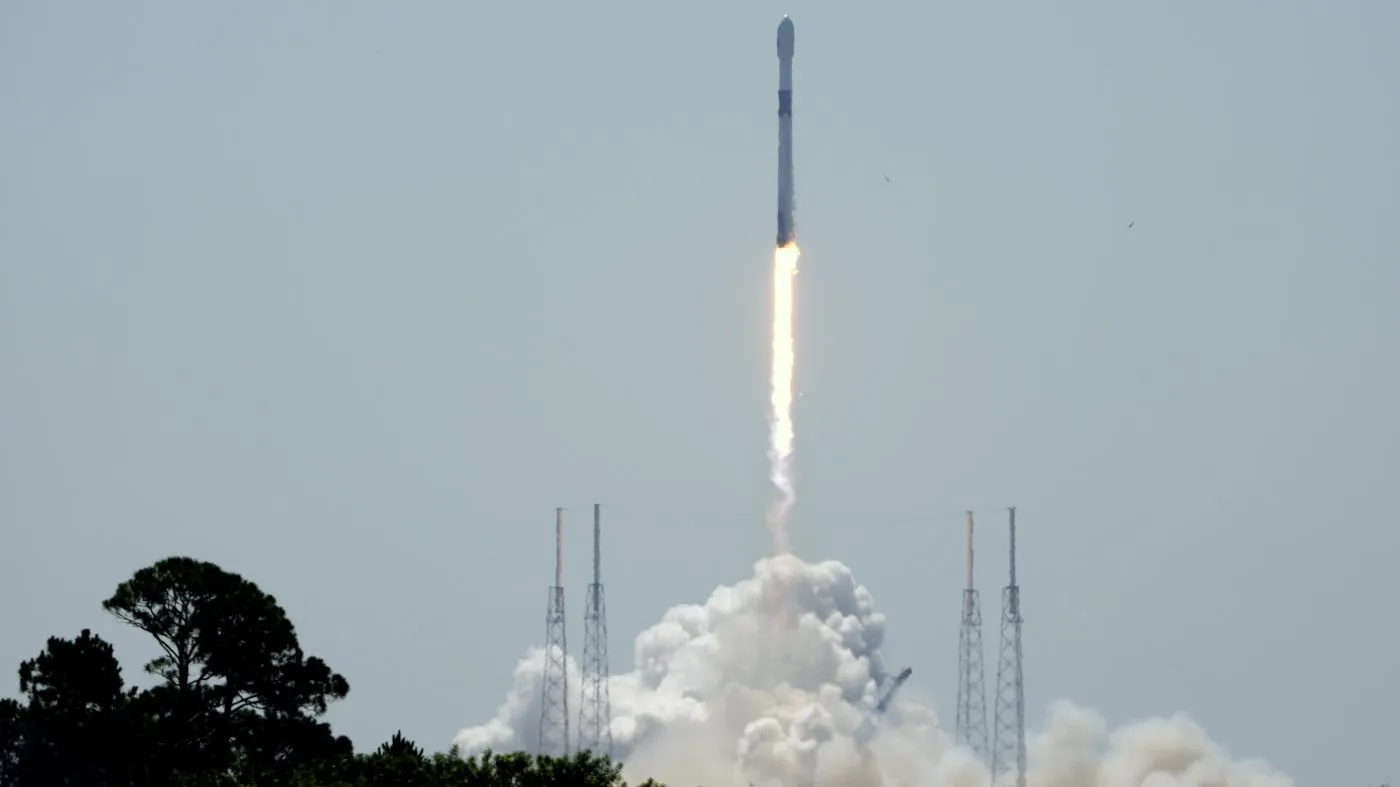On the evening of May 17, 2024, SpaceX achieved a significant milestone in spaceflight sustainability by launching a Falcon 9 rocket from Cape Canaveral Space Force Station, Florida, for a record 21st time. This marked a new record in the reuse of orbital-class rockets, reinforcing the company’s commitment to reducing space travel costs and increasing access to space.
Record-Breaking Launch Details
The mission, known as Starlink 6-59, successfully deployed 23 additional satellites into low Earth orbit, expanding SpaceX’s ambitious Starlink internet constellation. The first stage of the Falcon 9, known as B1062, has been a workhorse for the company, having previously launched significant payloads including GPS satellites and astronauts over its service life beginning in November 2020.
Approximately 8.5 minutes after its ascent, B1062 returned to Earth, landing flawlessly on the droneship ‘A Shortfall of Gravitas’ stationed in the Atlantic Ocean. This marked the 309th successful landing of a Falcon 9 booster overall, showcasing the rocket’s reliability and the precision of SpaceX’s recovery operations.
Technological and Operational Excellence
SpaceX’s rapid launch cadence was highlighted during this event, with B1062’s launch being part of a busy year for the company, aiming for around 150 launches. This booster alone has transported over 500 satellites and significant payloads to orbit, totaling more than 261 metric tons.
The recovery and reuse of rocket boosters are pivotal in SpaceX’s strategy to lower the cost of space access. The company has pioneered the technology and operational processes required for safe, reliable recoveries and rapid re-launch capabilities.
SpaceX’s Future Endeavors and Industry Impact
This achievement not only underscores the technical prowess of SpaceX but also emphasizes the broader implications for the space industry. By pushing the boundaries of reusability, SpaceX is setting new standards that could catalyze further innovations and reduce environmental impacts associated with space debris and manufacturing new rockets.
As SpaceX continues to enhance its reusability practices, the space industry watches closely, anticipating how these advancements will shape future missions, including those aimed at Moon and Mars exploration. The success of Falcon 9’s 21st launch is not just a testament to engineering excellence but also a beacon for sustainable practices in aerospace technologies.






























